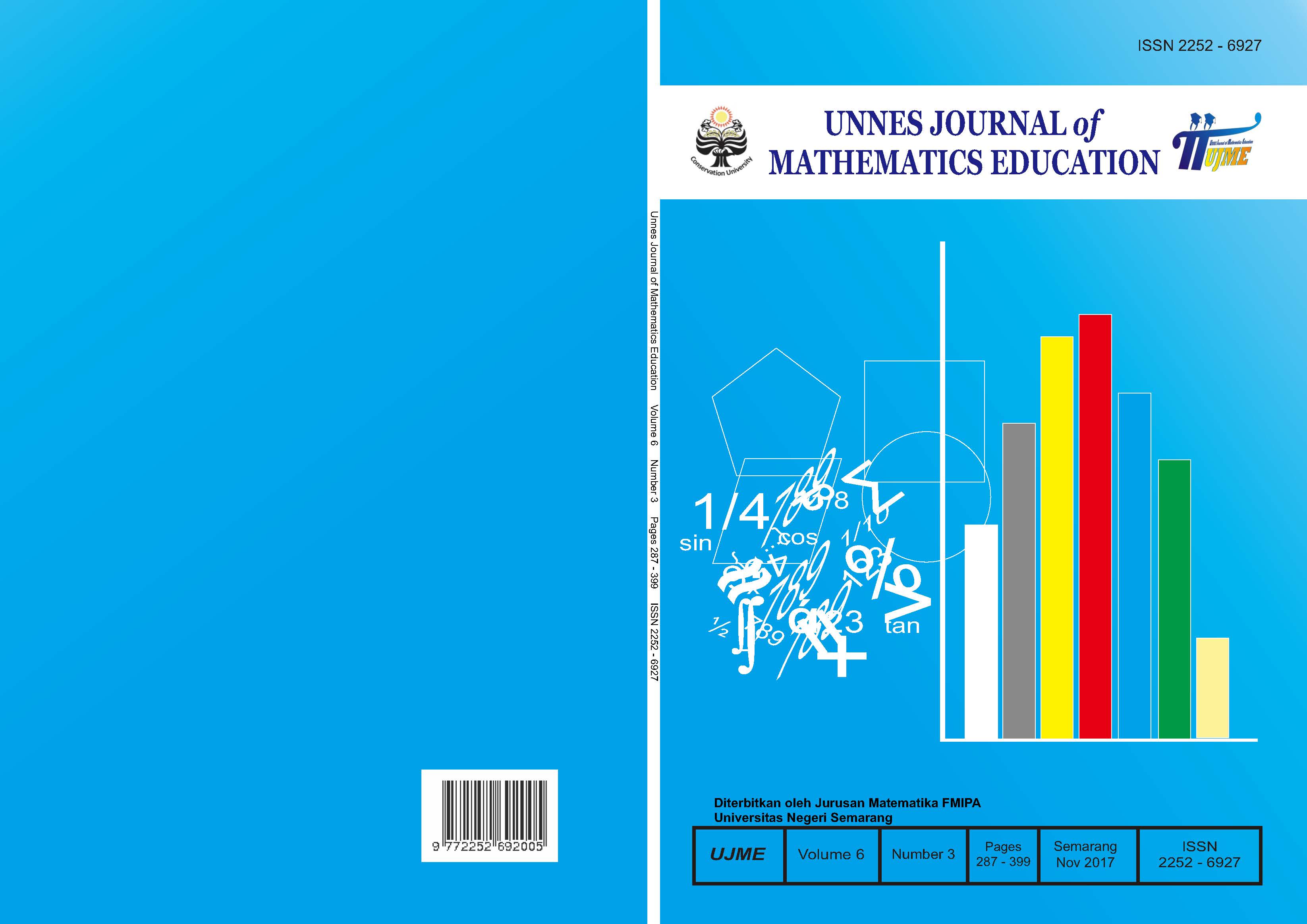The Role of Self Efficacy Towards Mathematical Problem Solving Ability in Terms of Positive Thinking Ability
##plugins.themes.academic_pro.article.main##
Abstract
This research aims to know the influence of the role of self efficacy towards solving math problems in terms of positive thinking. The method used was survey methods with quantitative approach and hypothesis testing using path analysis. Large sample as many as 140 students, with sampling the sampling technique used was saturated. The results of hypothesis testing indicate that: 1) there is a significant direct influence on self efficacy against the ability of solving math problems, with the line coefficient of 0.187 and contribute directly towards the ability of self efficacy the mathematical problem solving of 3.50%. 2) there are no significant direct influence positive thinking towards mathematical problem solving ability, with the line coefficient of 0.034 and direct contribution towards positive thinking ability of solving math problems very small even barely contribute, only amounted to 0.12%. 3) there is a significant direct influence on self efficacy against positive thinking, with a coefficient of line of direct contributions and 0.181 self-efficacy (self efficacy) toward positive thinking of 3.27%. 4) there were no significant effects of self efficacy against mathematical problem solving ability through positive thinking, with the line coefficient of 0.006.
##plugins.themes.academic_pro.article.details##
References
Andinny, Y. (2013). Pengaruh Konsep Diri dan Berpikir Positif Terhadap Prestasi Belajar Matematika Siswa. Formatif: Jurnal Ilmiah Pendidikan MIPA, Vol.3, No. 2
Arifin, Z. (2010). Membangun Kompetensi Pedagogis Guru Matematika. Surabaya: Lentera Cendikia.
Baron, R.A. & Byrne, D. (2003). Social Psychology. Boston: Pearson.
Elfiky, I. (2009). Terapi Berpikir Positif. Jakarta: Zaman.
Hidayat, R.W. (2015). Pengaruh Efikasi Diri (Self Efficacy) Terhadap Kemampuan Pemecahan Masalah Matematika. EduResearch “ Raise The Standard†Vol.1. Jakarta: UNINDRA Press.
Kim, U & Park Y. (2006). Factor Influencing Academic Achievement In Relational Cultures: The Role Of Self Relational, and Collective Efficacy. Jurnal Psikologi, Vol.21, No. 6.
Prasetyo, B dan Haryanto. (2015). Pengaruh Model Pembelajaran Problem Based Learning (PBL) Terhadap Kemampuan Pemecahan Masalah. EduResearch “ Raise The Standard†Vol.1. Jakarta: UNINDRA Press.
Rachmawati, F. (2015). Hubungan Antara Berpikir Positif Dengan Efikasi Diri Akademik Pada Mahasiswa Yang Sedang Menyusun Skripsi. Skripsi. FKIP, Psikologi, Universitas Negeri Semarang.
Ruseffendi, E.T. (2006). Pengantar kepada Membantu Guru Mengembangkan Kompetensinya dalam Pengajaran Matematika Untuk Meningkatkan CBSA (edisi revisi). Bandung : Tarsito.
